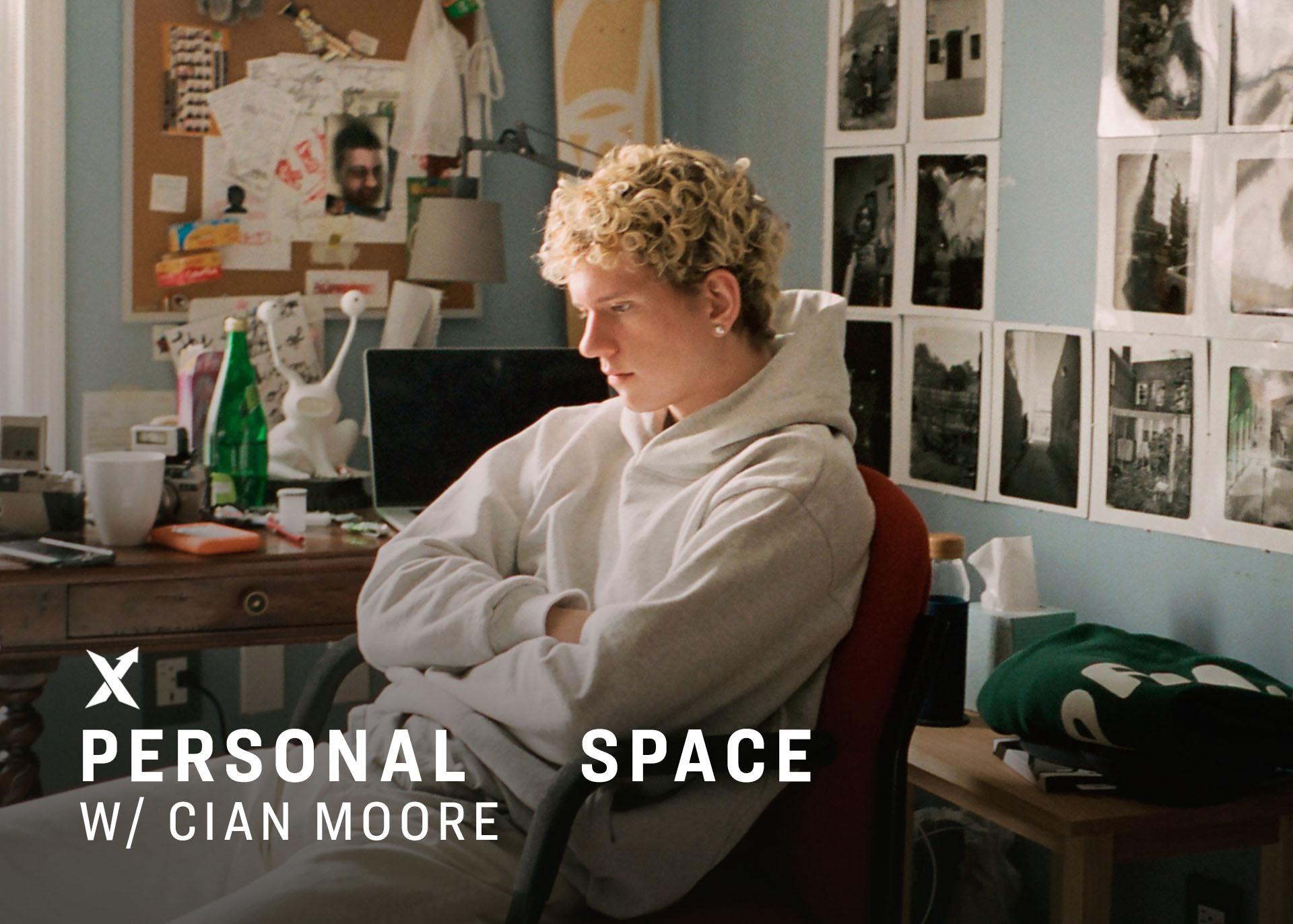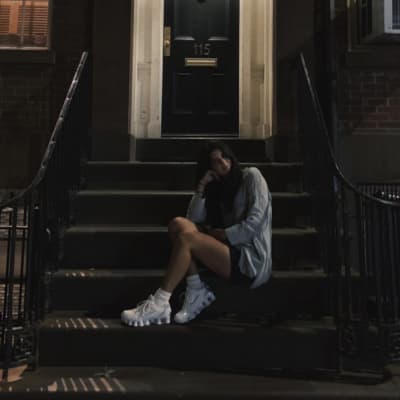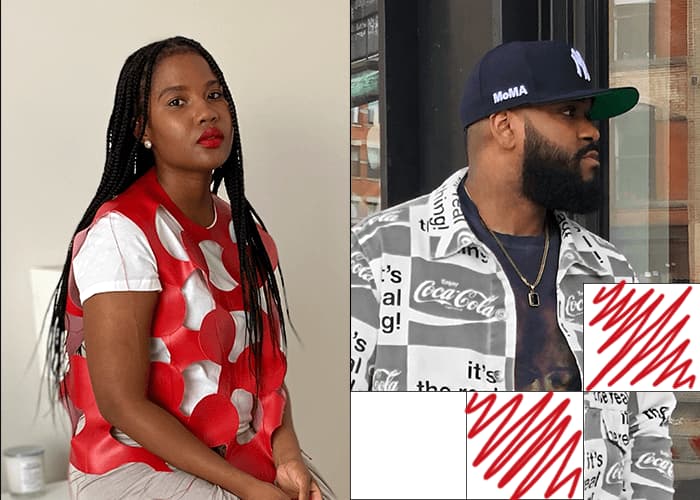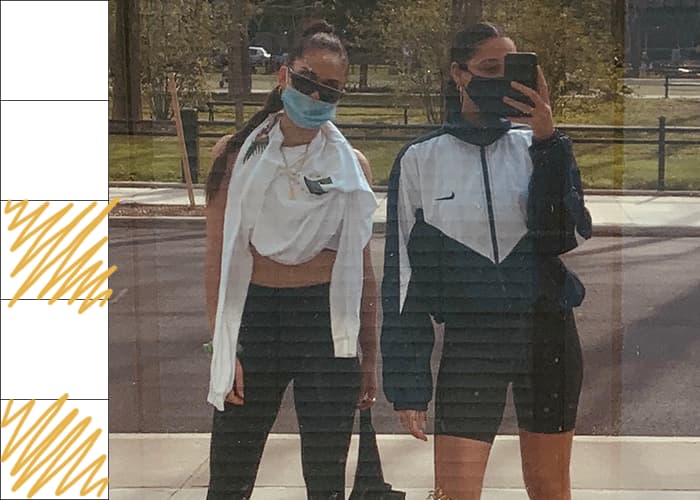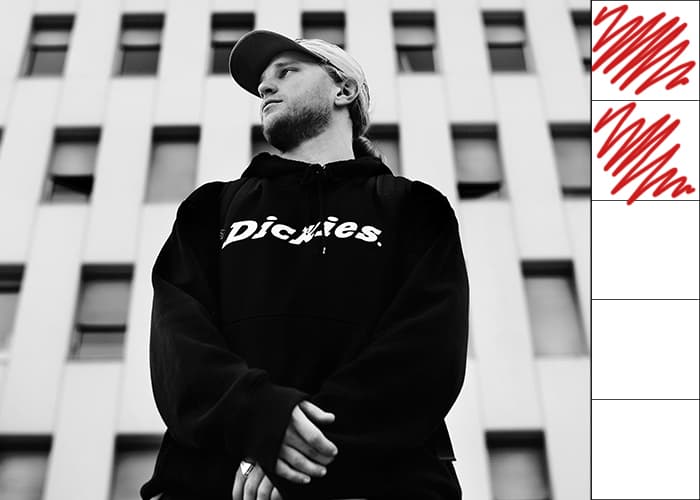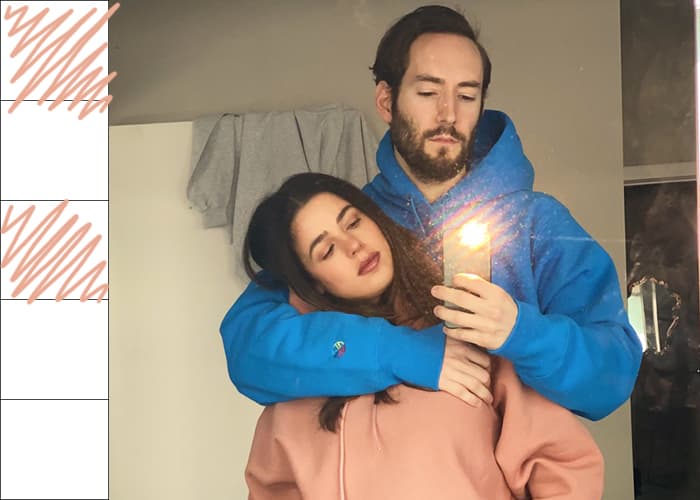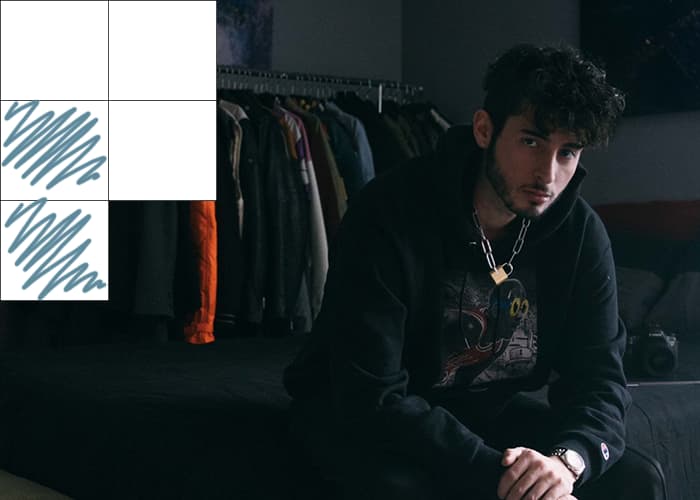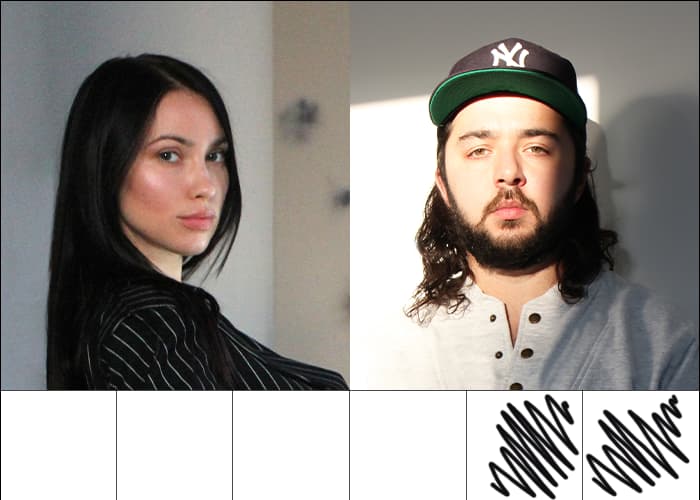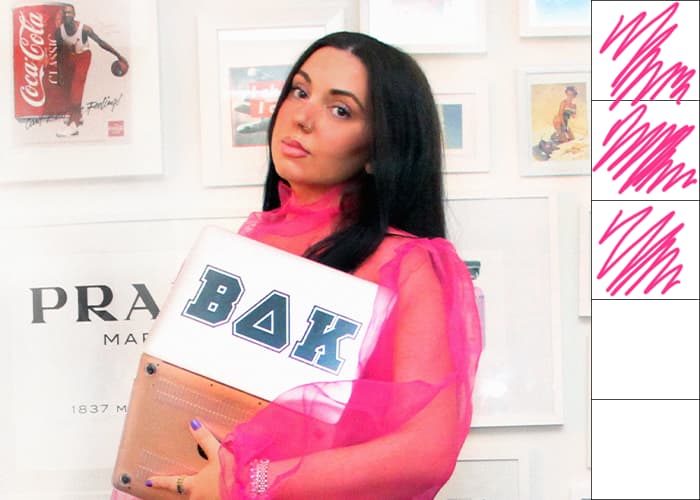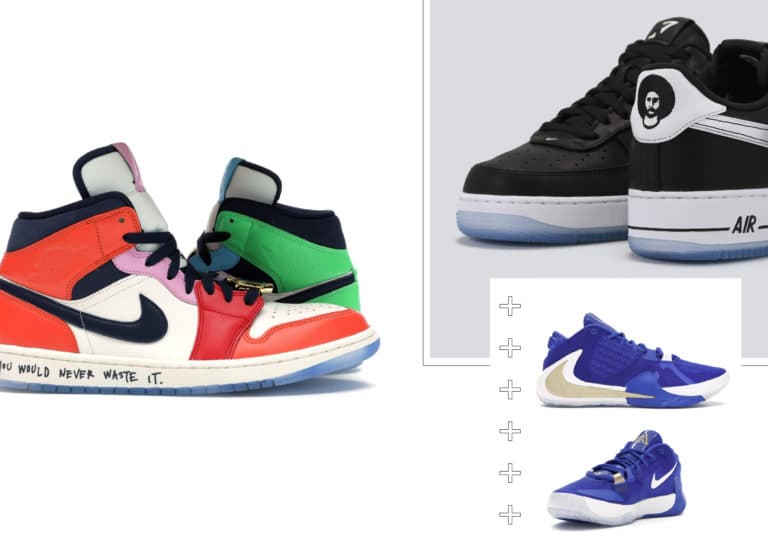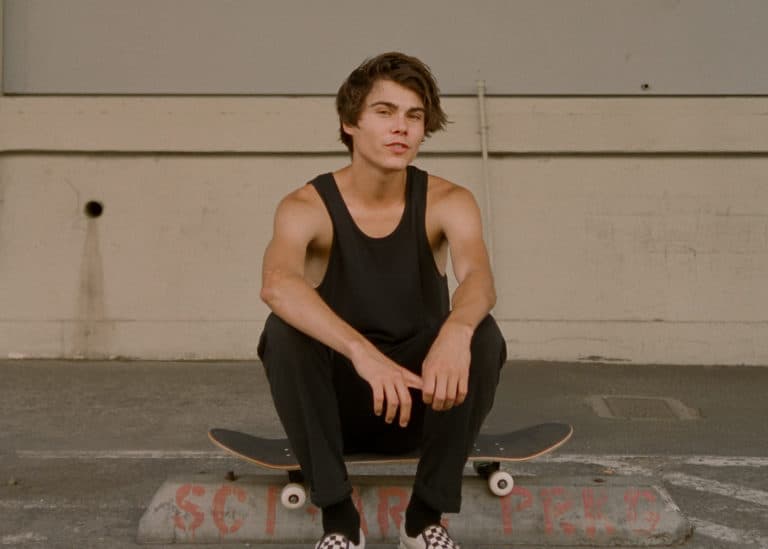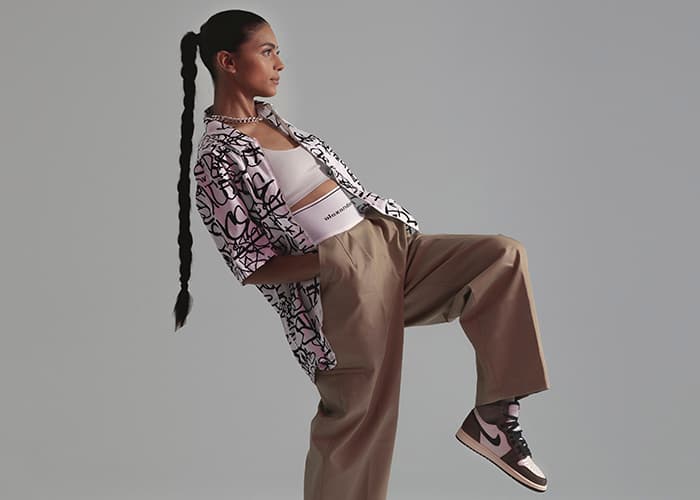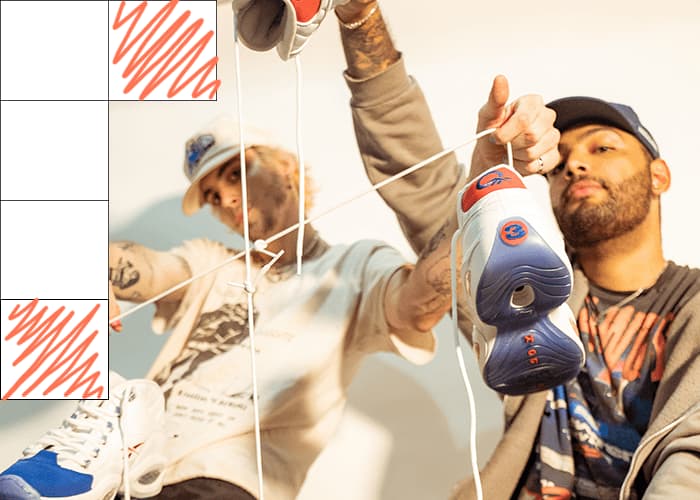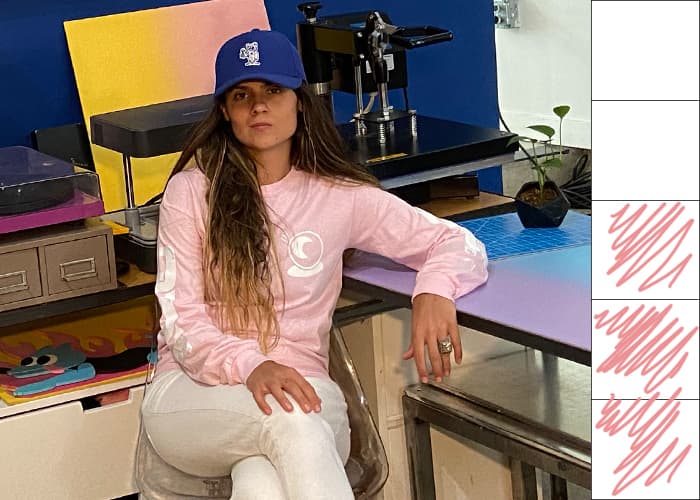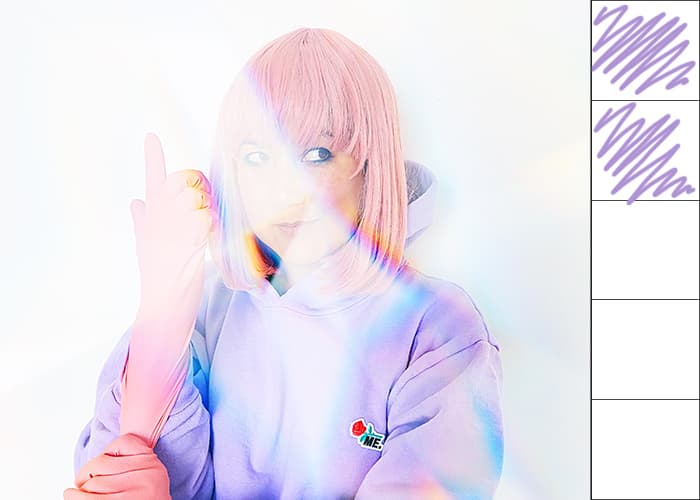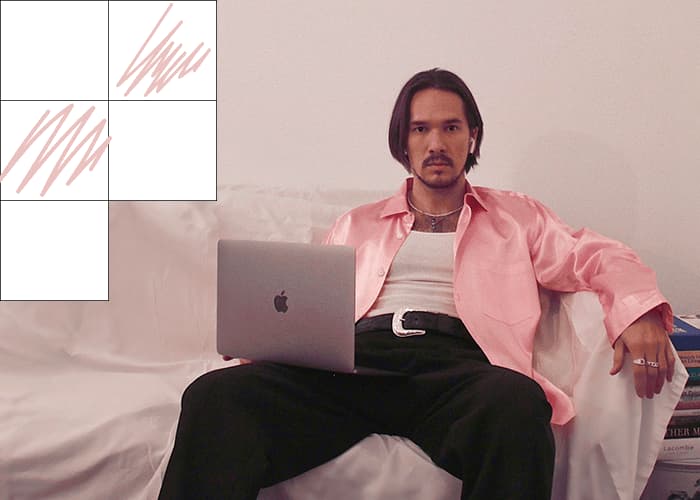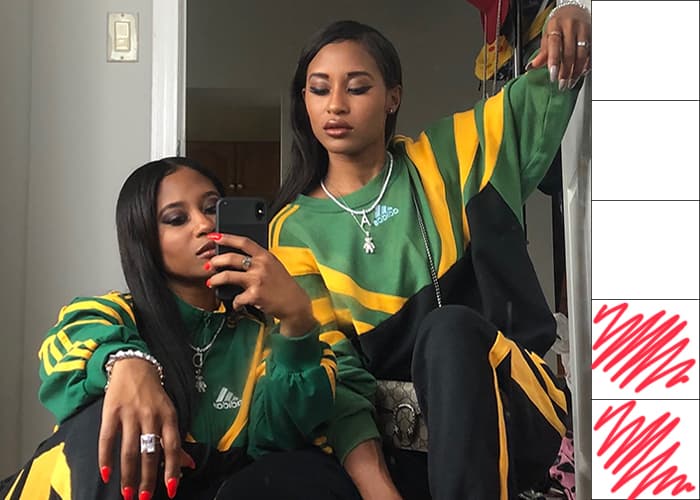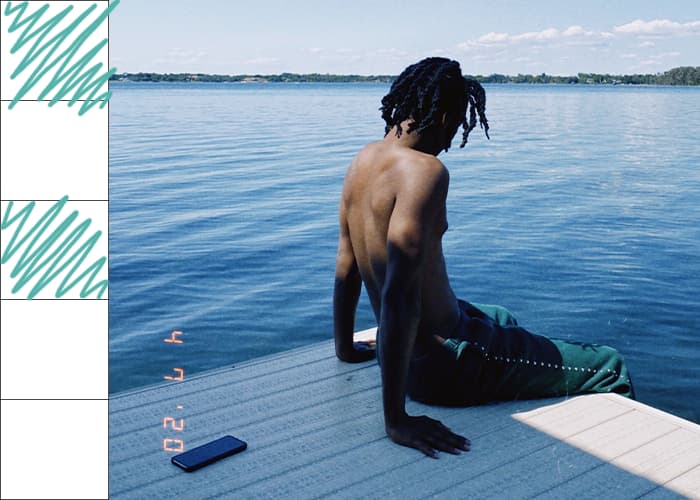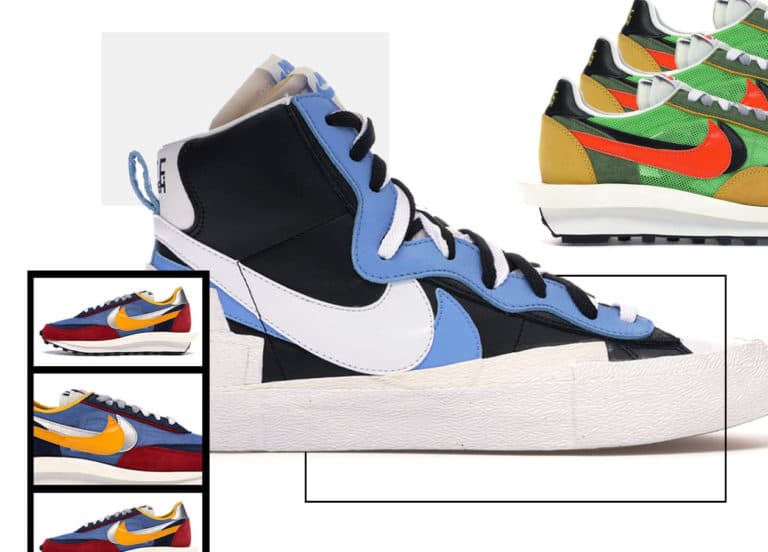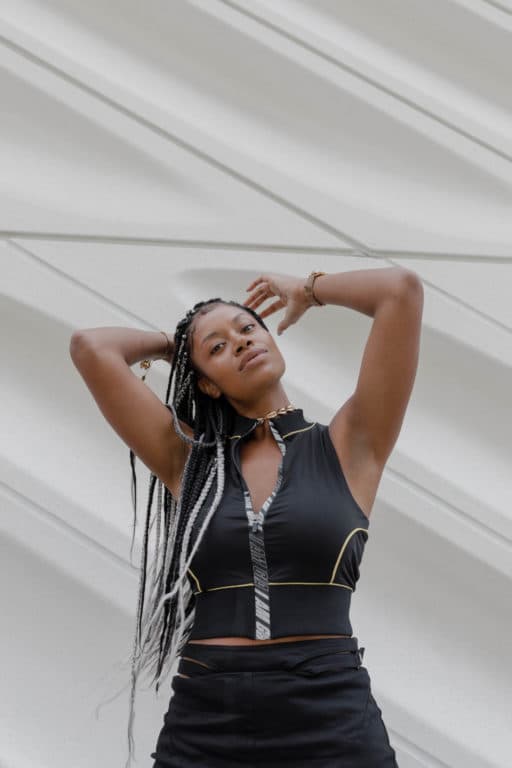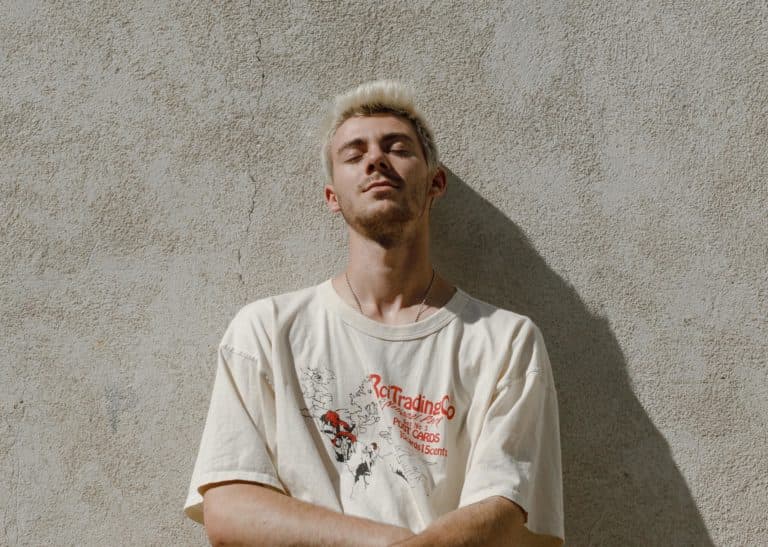
Editor’s Note: For this installment of Personal Space–StockX’s intimate look at the spaces that inspire our favorite creatives–we talk to photographer Cian Moore in his home and studio in NY. Read up. (This interview has been lightly edited for brevity and clarity.)
Cian Moore is a young New York photographer who’s only beginning to scratch the surface of his career. Just in the last couple years he shot Sheck Wes’s Mudboy album cover, lookbooks for Heron Preston, Stüssy, Nike, and Helmut Lang to name a few, and appeared on the cover of Travis Scott’s Astroworld. We caught up with Cian to talk about the trip that changed his career, the importance of being authentic, and what’s next.
Ari Nonahal, StockX: Can you introduce yourself?
Cian Moore: I’m Cian Moore. I’m a photographer. I’m from New York, Queens. You guys are in my house right now. This is where I grew up. I love taking photos.
A: Can you give us a rundown on this space?
C: This is the room I grew up in and it’s changed a lot since then. I hang a lot of my work on the wall. I have a lot of my favorite books laid out and everything. This is the main place I come to sit down and work. I’ll sit here for pre-production, think of an idea, write out the mood board and put together a whole deck here. And then, also do the post-production here, edit and everything else that’s involved. It’s a pretty good place to work. I normally don’t start work until super late at night though. I’ll be doing stuff the whole day but then when it’s like 3AM, I’ll be ready to work. I’ll be working ‘till 6 AM, just listening to music and the time kind of like flies by. I have everything I need within arm’s reach; all of my cameras, my lights are downstairs, all my books, my laptop and all that sort of stuff. So this is kind of like my office, even though my bed is two feet away from the desk.

A: You’ve had an amazing last couple of years. You shot the Mudboy album cover, multiple fashion campaigns and look book projects [Heron Preston, Stussy, Nike, etc.] What stands out to you as the turning point in your career?
C: A real turning point in my career was kind of this whole trip that I took to Los Angeles, which is when I shot the Mudboy album cover. I shot the Helmut Lang campaign and a few other projects. That’s when Astroworld happened too. That was all within this three week period.
The reason that three week period is so special is because I was supposed to be going there for the whole summer to intern for this photographer, Nick Walker, super good guy. I hadn’t figured out a place to stay. Like that night before I really didn’t know where I was going to be sleeping. The morning of my flight, I was like, All right, I’m not going. But I went, and it was the best trip of my whole life.

That really set off my career, that trip. Within the first day, Sheck called me and was like, “Where are you?” I was like, “I’m in LA!” He goes, “Oh, let’s shoot my album cover tomorrow.” And we did. And then I worked on the Astroworld album cover, and after that we shot this Helmut Lang [2018 Fall] campaign. Those three weeks were crazy, not because of what I did, but because of what I learned. For one, you have to figure stuff out and finesse. Even if it’s somewhere to sleep, which is what I actually had to do for three weeks. I also learned what it means to be a career photographer from Nick and all of the other guys working for him, and my friends Tyler, Cory, and Ryan. There is so much pre-production that goes into it before you even get to set, and post-production once you walk off set.
The Mudboy album cover specifically was a long layout process. It was essentially completely up to me. I really didn’t know what I was going to do for it. I was sitting with Nick Walker one day and I was helping him edit this video and all of the sudden I was like, Oh, I know what it should be. I went outside of the studio we were in and picked up some dirt from outside. I went into the bathroom and painted the mud onto a piece of paper and took a picture of it. I sent it to Sheck [Wes] and he was just like, “Yeah! That’s it.” That was pretty cool.
A: I was reading somewhere that the mud splatters weren’t in the original concept.
C: No, not at all. We shot on this huge soundstage in Los Angeles, it was enormous. You could have put a whole town in there. I said to the woman on set, “What would happen if it got a little dirty?” They had laid out plastic everywhere to make sure that it didn’t get dirty. She was like, oh you know what, they’ll just repaint it. So I said to Sheck, you know… you could throw stuff at the wall.

I have some pictures of the before but we were shooting for a while then he just decides to start throwing mud at the wall. I think it came out looking way better than it would have with just a regular plain wall. The one that we used he chose straight away. He looked at it and was like, “This is the one.”
That three week trip in LA it wasn’t just one thing. It was the dive out into not knowing at all what was gonna happen. I had like $700 of my own money.
But yeah it was the dive, like completely stepping out of my comfort zone. Not knowing anything that was gonna happen and just going. And then, really amazing stuff just happening. But its not magical. I think you also have to put in the work. I didn’t just go there and just be like, “yo someone give me work” ya know. It wasn’t that. I think it just kind of serendipitous.
A: Now that we’ve talked about these pivotal moments in your career, let’s go back to your first personal space. You’ve said in previous interviews that growing up you had cameras everywhere. Did you always know you wanted to be a photographer?
C: I did not know I always wanted to be a photographer. I always knew I wanted to be something creative but I never knew what that meant. I still don’t know entirely what that means. I’m still not sure I want to be a photographer. Yeah, it’s strange. I’m still taking time to figure it out now. I just left school to figure that out, and I’ve been lucky and fortunate I have work. I left school to pursue that. I think in that pursuit of the work I’ll kind of figure out what I want to be. Maybe I won’t end up being a photographer. Maybe I’ll end up being the photo editor or director or something. I don’t know. It’s hard to tell.
For right now I really like doing it and I’ll always be taking pictures but maybe I won’t be a photographer. I’m still trying to figure it out.
A: Here in your room, if you had to choose one biggest labor of love, one most meaningful item, what would it be?
C: Everything in my room is meaningful because it was either given to me by a friend, I bought it because I really wanted it, or it’s something I made. It’s all of the stuff I really care about.

A: When you sit down at your desk, what’s your creative process? What’s the first thing you do?
C: I start my creative process, I’ll sit down and draw out a rough sketch. I can’t draw really, like not good at drawing, but I’ll draw out exactly what I want, or how I want the form of the photo to look. Where I want the shadows and highlights and all that stuff to be. Then, I’ll look in books or I’ll look online, or I’ll look in my folder references on my phone for stuff that I think would fit the mood, or the tone, or the feeling that I’m going for. Then I’ll pull those out, put them together onto a document and take it from there.
Then I’ll hit up a friend and say like yo, this is what I wanna do. Who should I, I’m really bad at casting, which is weird. I would be like yo, who should I put in this and they’ll make a suggestion. Then, it’s kind of, yeah, then I’ll ask my friends for a lot of advice. Throughout the whole process, sometimes they’ll be on set with me and I’ll be like, yo is this cool, do you fuck with this and they’ll say yes or they’ll say no. They’ll tell me the truth. Even in post, I’ll be like yo, do you like this layout or do you like the way that this is going? So that’s kind of the creative process.
A: Do those three index cards on the wall play into it?
C: Oh, yeah. Those are funny. I don’t understand why people think those are so cool.
A: That was the first thing I noticed walking in.
C: It’s a David Blaine quote. It says, Is it meaningful? Is it interesting? Is it authentic? So I’ll say to myself, is it authentic? Is it real to what I like? Is it real to what I’m trying to say? Is it meaningful and interesting? I don’t know if it has to be meaningful to anyone else as long as it’s meaningful to me.

A: With this being such a personal space to you, and this being your creative space, how does that differ from how you are when working in the studio?
C: Well, the studio is kind of like a collaboration. Here, I have the option to call someone, text someone, and then they disappear two seconds later because they’re not physically here. But in the studio, it depends. If it’s a personal project I will control everything. If it’s a commercial project, I’ll also control everything but I’ll have a little bit less room to kind of do something crazy. You know? It’s also a collaboration with the model. If they know what they’re doing then they will kind of lead the shoot and I’ll kind of work around them. In the studio I have to be more open and more accepting and more understanding to listen to others. Whereas here [in his room,] if I send someone an email and they respond saying, oh I don’t like this. It’s different. It’s not instant and we can fix that sort of stuff. In the studio it’s kind of all right there. I try to be really understanding, because I’ll get a very specific vision about how something has to be. For a commercial job, that might not necessarily translate well for the client. The client has my best interests at heart but they also have their best interests at heart. They’re paying for the job. I have to learn to be more understanding with stuff like that.
A: In a city of so many people and the rise of social media, it seems so many people identify as photographers nowadays. How do you stand out?
C: If you worry about standing out, you are more than likely not going to stand out. If you’re so conscious about how you look or how you move, if everything is calculated, so that all of these calculations add up to this idea of success or this thing, people are gonna be able to see through that. You know, some people do it well. Some people, every step of the way is written out, completely calculated. They have a huge team behind them and that’s fine, but the majority of people can’t do that because it’s just going to look forced and feel forced. People are going to see through, and they’re going to know it is not authentic because it’s going to feel that way.
So I think the way that I kind of stand out is by just staying true to myself. I just try to stay in my own lane and do my own thing. I never do anything to impress anyone, never do anything strictly for Instagram. It’s all because I like it and I really wanna make it, ya know. I’ll just put it out after that. I’ll share it. Being authentic is the best way to stand out but that’s really hard. Being authentic is hard. Because it is super easy to be a fraud.

A: Well, I think that’s the great thing about you. You’re not in this for anything other than you love being creative and taking photos. You can tell all the friendships that you have are genuine, especially how you talk about Sheck.
C: I’m really big on the authenticity thing.
A: Can you describe some of the craziest moments you’ve had in a studio?
C: It wasn’t in the studio but It was actually here [his room.] It was three weeks ago, on Valentine’s Day. I was hired for this shoot and I didn’t tell anyone who the shoot was with. I didn’t tell anyone that this person was coming to the house, and then he showed up… and it was A$AP Rocky. We had to do a shoot in the backyard. When he arrived, he pulled up across the street in his SUV and rolled down the window and was like, Damn, you really brought me all the way out to Queens. He came into the house and I just thought to myself, damn, I’m a fan of this guys music. When I listened to it for the first time, it was here in this house. He was super nice. He spoke to my dad for fifteen minutes and met my whole family because they just happened to be here. That was kind of a crazy experience. It wasn’t at the studio but it was a shoot. That was cool. Obviously the Mudboy studio shoot was crazy also. That was just a really fun day.
A: For someone who’s always behind the camera, what was it like being on set for Astroworld?
C: It was cool. The thing about that is, other than getting super lucky, I didn’t really have anything to do with that. I just happened to be there. David LaChappelle happened to notice me and was like, Do you want to be in a photo? And I said yes. Other than that, it didn’t really interest me. I was just hyped to be on set with David LaChappelle. I actually didn’t know what it was for. I guess it was easy though! He told me exactly what to do. But I like staying behind the camera.

A: Is there a specific person who’s been a mentor to you or really pushed your work in your life so far?
C: Yeah, I have a few mentors in my life. People who really encourage me. People who are older than me. My friend Ava, Chris, Mark, and Nick, all keep me in check. If they see me doing something kind of crazy online they’ll hit me up about it and be like, Yo, what’s this about? I talk to them on the regular. They are people that keep me on track, refer me for more work or give me advice based on their own experience.
Having people like that in your life is super important because they’ve been through I don’t have business relationships with them so there are no ulterior motive. They truly have my best interest at heart. It’s not like they’re going to misguide me to get ahead because they’re already ahead. They’re older than me and much more successful. They don’t need to do that. They’re doing it out of the good of their heart to help me because I guess they see I have potential or maybe they think that I’m similar to the way that they came up.
A: That’s important to surround yourself with people like that.
C: Yeah, especially as you grow and get more successful.
A: So where would you say you were at as an artist today?
C: I would say that I’m more of an artist than a photographer. Right now I’m working a lot of personal projects. No one is funding them, I’m funding them myself. The money that I make from commercial work is going straight back in to make picture that I really wanna make. So that’s what I’m really focusing on now. The personal side, that way I have full control.

A: Is there anything you can talk about for what’s next for you? That you can say on record?
C: I have a few projects that I’ve shot that haven’t come out yet. They’re commercial so I can’t really talk about that yet. I have a lot of fun personal stuff also. Three days ago I shot this kid, my friend Casper, in a studio. He’s sick. He makes really good music. We built a fake wall and put an outlet on it and I put a light behind it to look like he was sticking a fork into an outlet. There’s a few other projects that I’m working on. I just pitched this really fun concept to a magazine so we’ll see if that works out.
A: What’s something that you want people to know about you?
C: I’m a really nice guy. One thing that I want people to know about me is that I’m a hard worker, I’m dedicated, and I’m authentic. Nah, and that I’m a nice guy. Because I think that I’m a nice guy.


